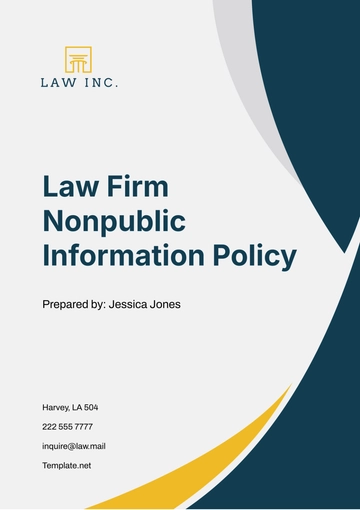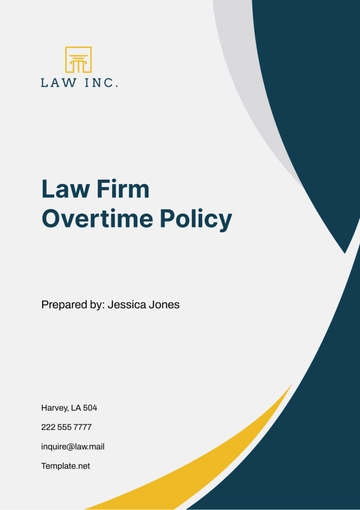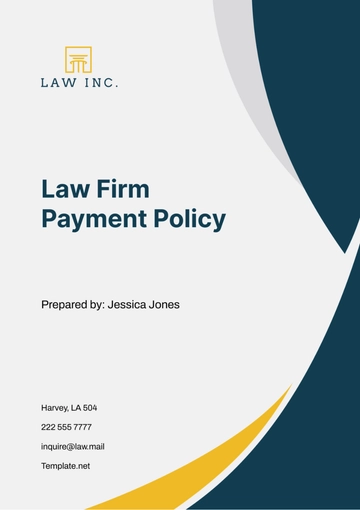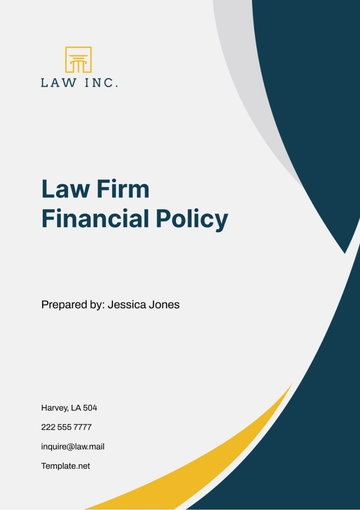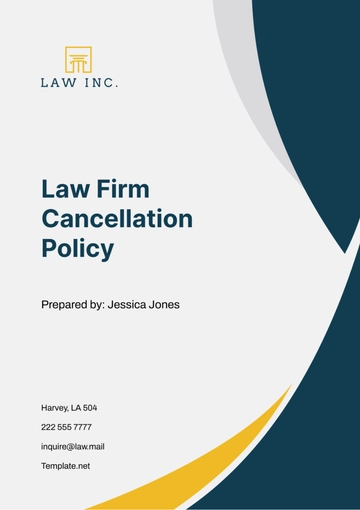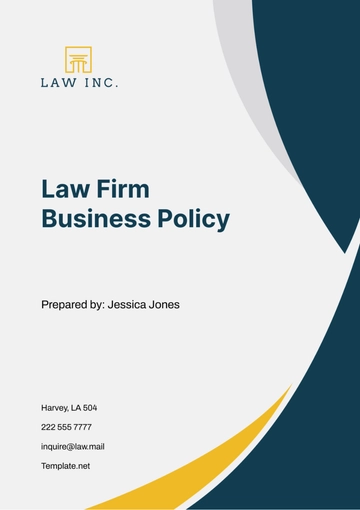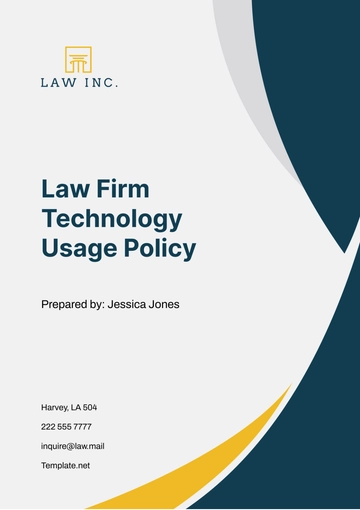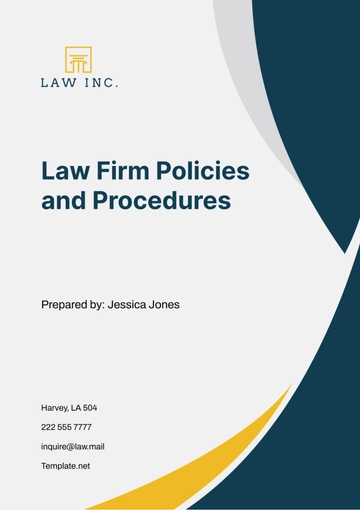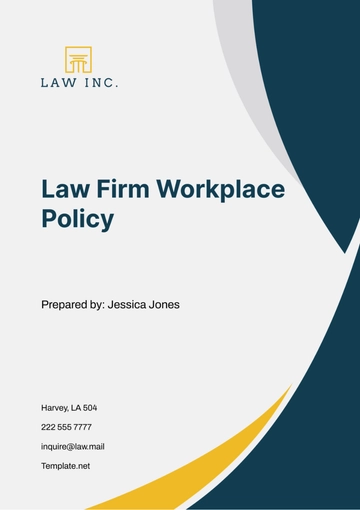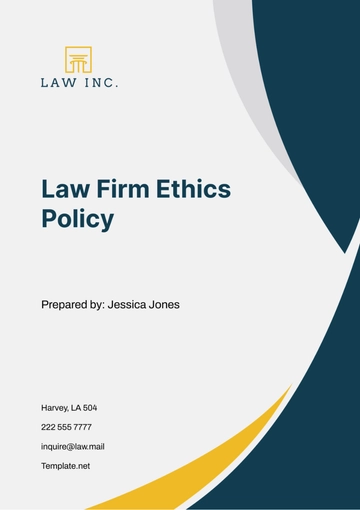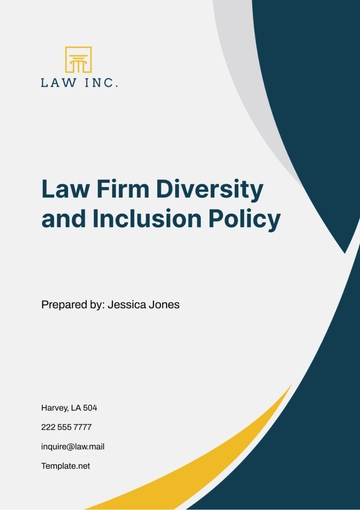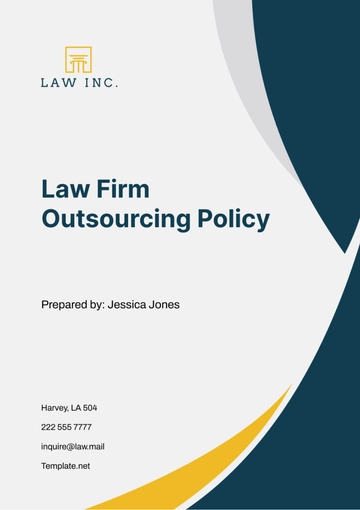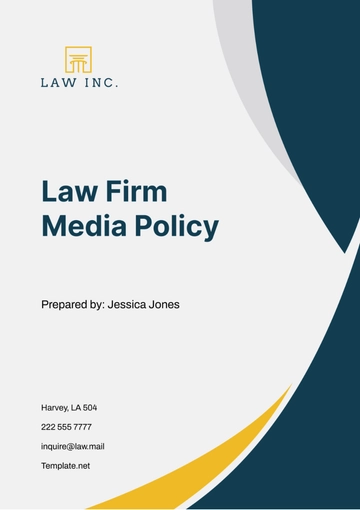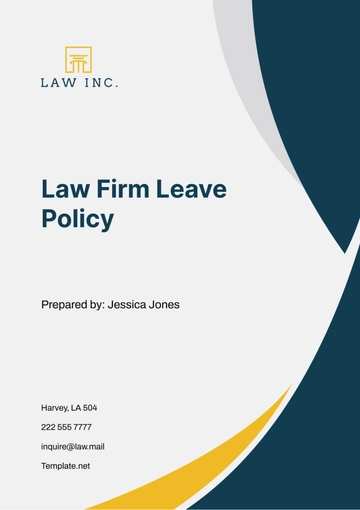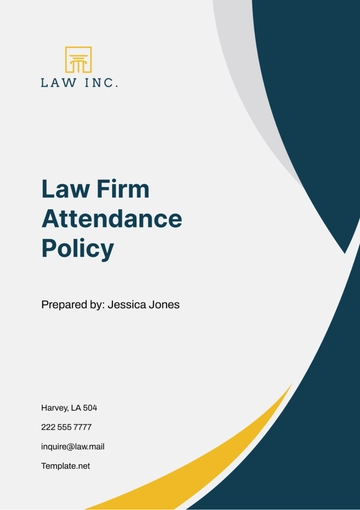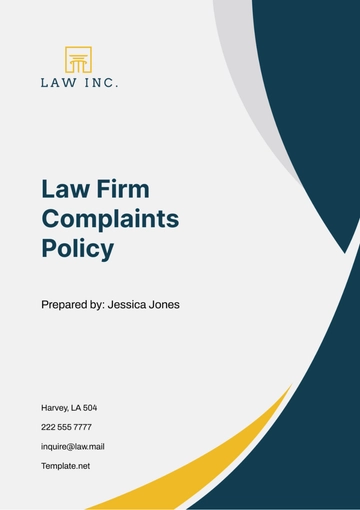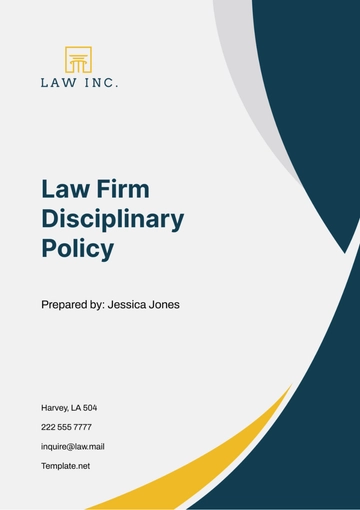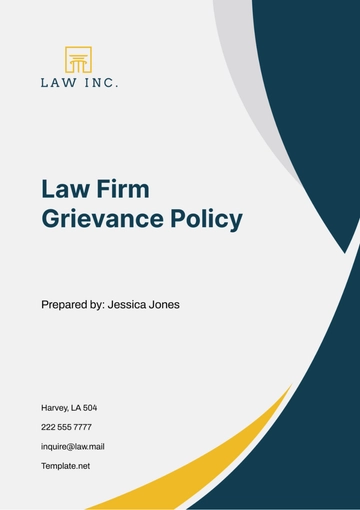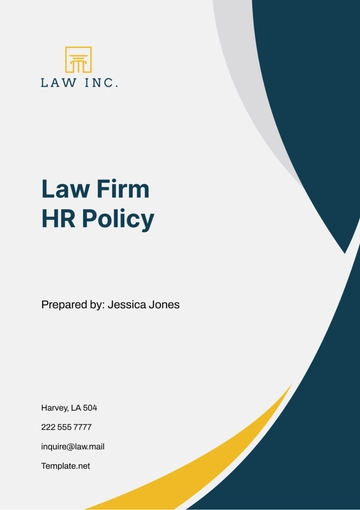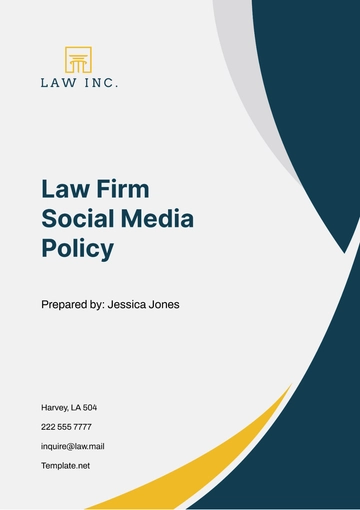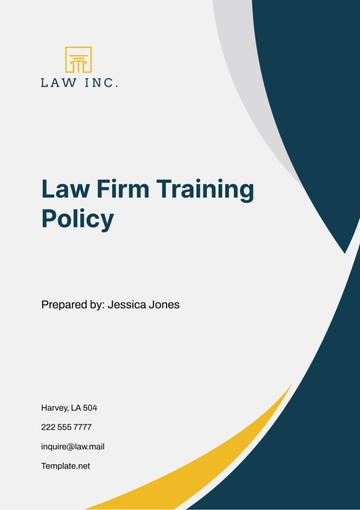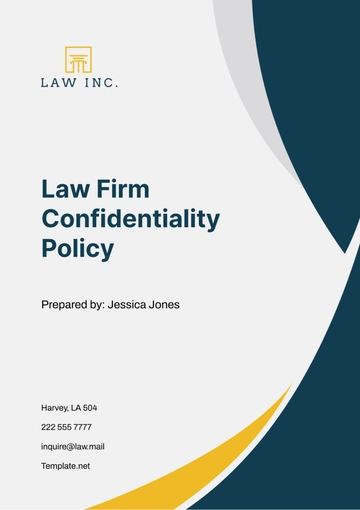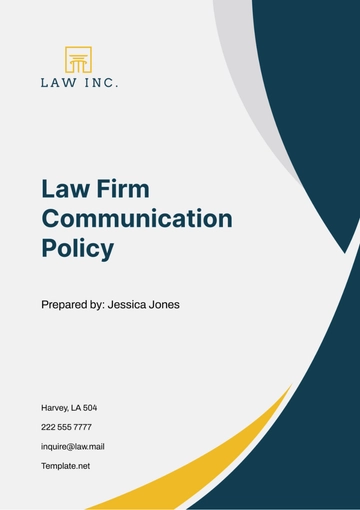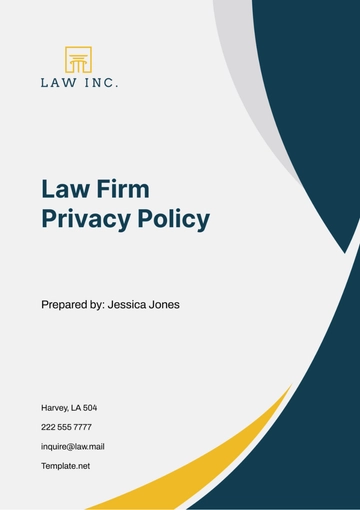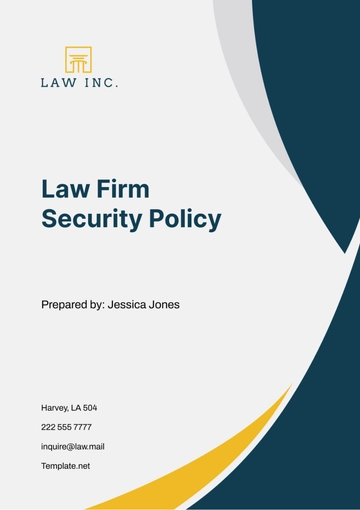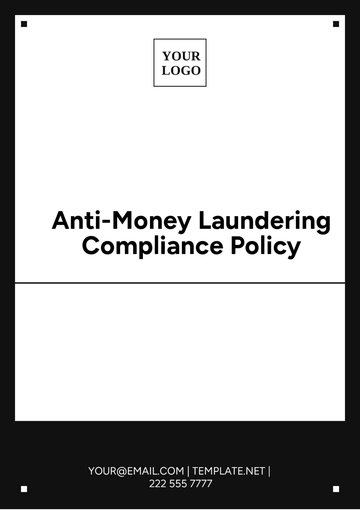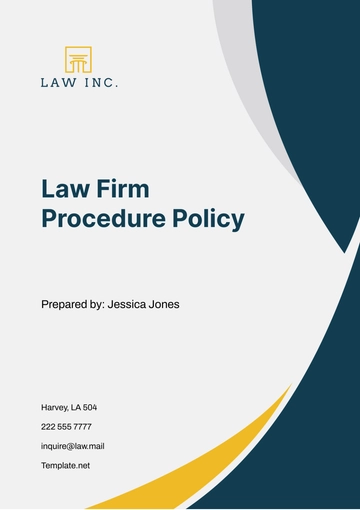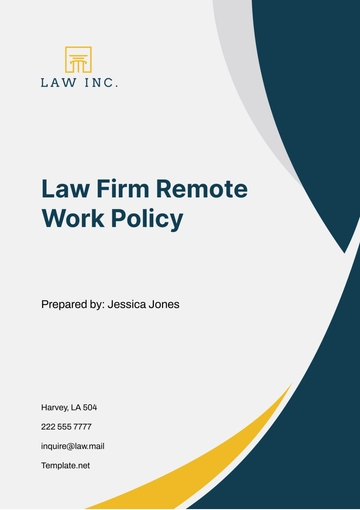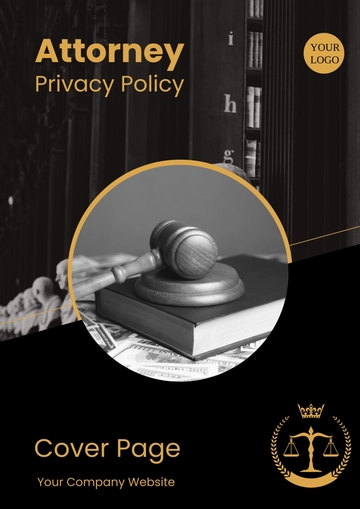Free Law Firm Media Policy
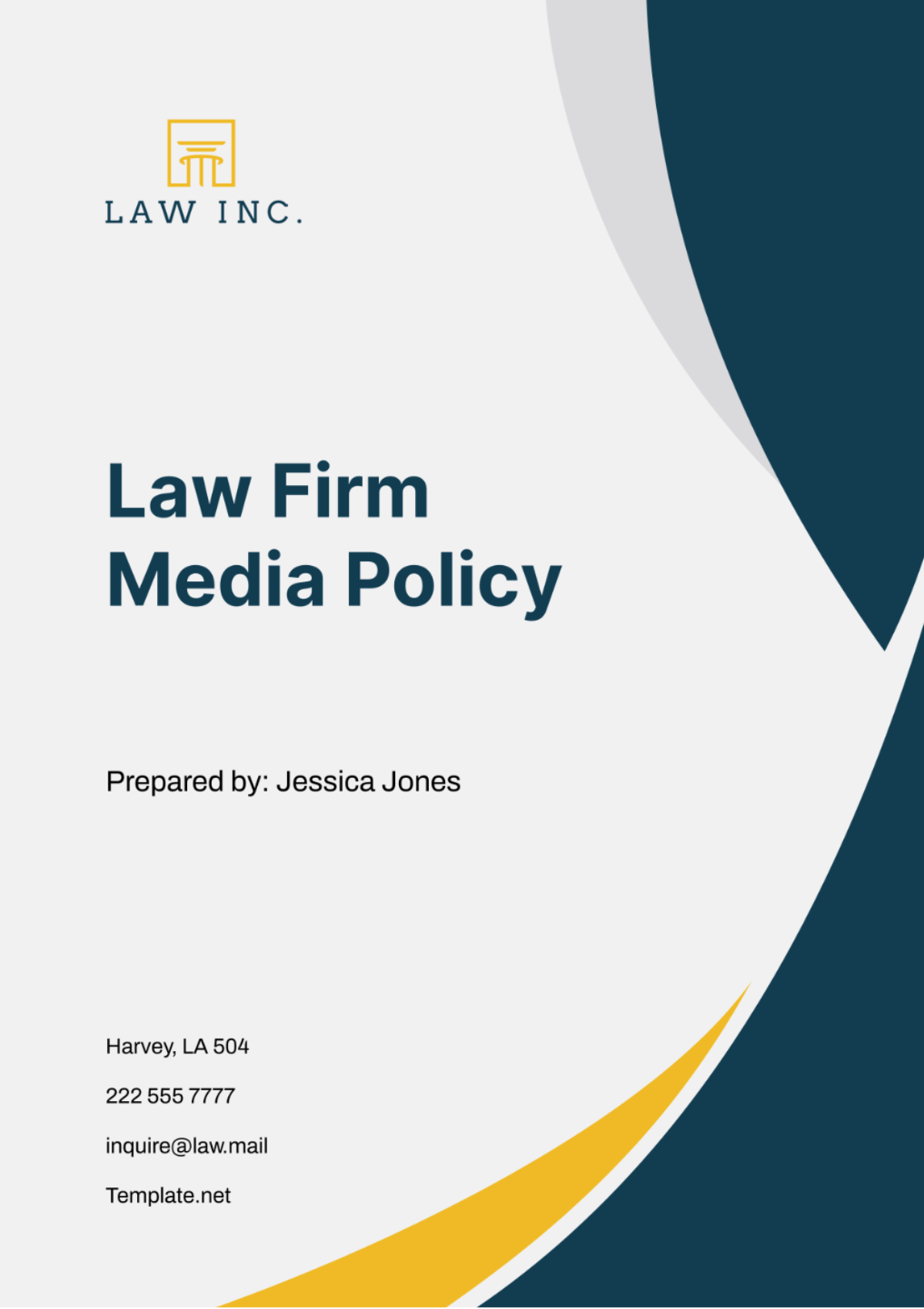
I. Introduction
A. Purpose of the Media Policy
This Media Policy serves to establish clear guidelines and protocols for managing the law firm's interactions with the media. It aims to ensure that all media communications are conducted in a professional manner, uphold the firm's reputation, and safeguard client confidentiality and legal privilege.
B. Scope and Applicability
This policy applies to all employees, partners, and representatives of the law firm, regardless of their role or level within the organization. It encompasses all forms of media interactions, including interviews, press releases, social media engagement, and public statements made on behalf of the firm.
C. Compliance with Legal and Ethical Standards
The firm is committed to conducting all media interactions in compliance with applicable laws, regulations, and ethical standards governing legal practice and media relations. This includes adherence to confidentiality obligations, respect for attorney-client privilege, and avoidance of activities that could be construed as misleading or unethical.
II. Media Contact Protocol
A. Designation of Authorized Spokespersons
Authorized spokespersons for media inquiries include the Managing Partner, Chief Communications Officer, and designated members of the Public Relations team. These individuals are responsible for managing media relations and ensuring that all communications align with the firm's strategic objectives and messaging.
B. Procedures for Handling Media Inquiries
Upon receiving a media inquiry, employees should promptly notify the designated spokespersons to coordinate a response. Media inquiries should be documented, and responses should be crafted in accordance with approved messaging and protocols, with consideration given to legal and reputational risks.
C. Coordination of Media Relations Efforts
All media relations efforts, including the release of press statements, scheduling of interviews, and distribution of press releases, should be coordinated through the firm's Communications Department. This ensures consistency in messaging and allows for strategic alignment with the firm's goals and objectives.
III. Confidentiality and Attorney-Client Privilege
A. Importance of Maintaining Client Confidentiality
Client confidentiality is paramount, and employees must exercise discretion in all media interactions to avoid disclosing sensitive information. Any discussion of client matters with the media should be conducted with the utmost care and only with explicit client consent or legal authorization.
B. Prohibition on Disclosing Sensitive Information to the Media
Employees are strictly prohibited from disclosing confidential or privileged information to the media without prior approval from the Managing Partner or designated legal counsel. This includes details of ongoing cases, client identities, internal firm strategies, and any other information protected by attorney-client privilege.
C. Procedures for Handling Confidential Information in Media Interactions
In cases where media inquiries touch upon sensitive information, employees should refrain from providing substantive responses and instead refer inquiries to designated spokespersons or legal counsel for appropriate handling. Any disclosure of confidential information must be authorized and conducted in compliance with legal and ethical obligations.
IV. Message Consistency
A. Ensuring Consistency in Firm Messaging
Consistency in messaging is essential to maintain the firm's reputation and credibility with the media and the public. All firm representatives engaging with the media must adhere to approved messaging guidelines to ensure that key points are communicated effectively and accurately.
B. Guidelines for Crafting Key Messages
Key messages should be developed in alignment with the firm's strategic objectives, values, and target audience. Messages should be concise, relevant, and tailored to address the specific needs and interests of the media and stakeholders, while also reflecting the firm's expertise and unique value proposition.
C. Training for Firm Representatives on Message Delivery
Employees engaging with the media should receive training on effective message delivery techniques, including media coaching, interview preparation, and message reinforcement. Training programs should emphasize the importance of staying on message, responding thoughtfully to inquiries, and conveying information with clarity and confidence.
V. Crisis Communication Plan
A. Activation of Crisis Communication Team
In the event of a crisis or emergency situation, the firm's Crisis Communication Team will be activated to manage media responses and mitigate reputational risks. The team will consist of senior leadership, communications professionals, and legal counsel, who will collaborate to develop and execute an effective crisis communication strategy.
B. Procedures for Responding to Negative Publicity or Crisis Situations
The Crisis Communication Team will develop predefined protocols and procedures for responding to negative publicity or crisis situations, including escalation pathways, message development, and media engagement strategies. These procedures will be regularly reviewed and updated to ensure responsiveness and effectiveness in managing crises.
C. Media Monitoring and Rapid Response Protocols
The firm will implement robust media monitoring systems to track and monitor news coverage, social media conversations, and online mentions relevant to the firm. Rapid response protocols will be established to enable swift and effective responses to emerging issues, including the dissemination of accurate information, clarification of misinformation, and proactive engagement with stakeholders.
VI. Social Media Guidelines
A. Use of Social Media by Firm Representatives
Employees are permitted to engage in professional use of social media platforms in a manner that reflects positively on the firm. However, they must exercise discretion and judgment to ensure that their online activities do not compromise client confidentiality, violate firm policies, or damage the firm's reputation.
B. Guidelines for Professional Conduct on Social Platforms
Firm representatives should adhere to ethical standards and professional conduct guidelines when engaging on social media platforms. This includes refraining from making disparaging remarks about clients, colleagues, or competitors, avoiding conflicts of interest, and maintaining a respectful and professional tone in all interactions.
C. Protection of Firm Reputation on Social Media
Employees are responsible for protecting the firm's reputation and brand integrity on social media platforms. They should monitor their online presence regularly, respond promptly to inquiries or comments related to the firm, and escalate any issues or concerns to the appropriate channels for resolution.
VII. Approval Process
A. Procedures for Reviewing and Approving Media Communications
All media communications, including press releases, statements, and interviews, must be reviewed and approved by designated individuals within the firm before dissemination. This ensures that messaging is accurate, consistent, and aligned with the firm's strategic objectives and legal obligations.
B. Designation of Individuals Responsible for Approval
The firm's Communications Department, in coordination with legal counsel and senior management, is responsible for reviewing and approving media communications. Designated spokespersons and subject matter experts may also be consulted as needed to ensure accuracy and relevance of content.
C. Escalation Process for Urgent Media Inquiries
In the event of urgent media inquiries or time-sensitive communications, designated spokespersons have the authority to approve responses or escalate matters to senior management for expedited review and approval. This allows for timely and effective handling of media inquiries while maintaining adherence to firm policies and standards.
VIII. Legal Compliance
A. Compliance with Applicable Laws and Regulations
All media interactions conducted by the firm and its representatives must comply with applicable laws, regulations, and professional standards governing legal practice and media relations. This includes but is not limited to, laws pertaining to defamation, privacy, intellectual property, and advertising.
B. Understanding Defamation Laws and Legal Risks
Employees engaging in media communications should have a basic understanding of defamation laws and the potential legal risks associated with making false or defamatory statements. They should exercise caution when discussing individuals, organizations, or matters that could give rise to defamation claims.
C. Adherence to Rules Regarding Advertising and Solicitation
Firm representatives must comply with rules and regulations governing advertising and solicitation in their jurisdiction. Any promotional materials or communications intended for public dissemination must be reviewed for compliance with relevant ethical rules and guidelines.
IX. Training and Education
A. Training Programs for Firm Representatives on Media Relations
The firm shall provide comprehensive training programs for employees, partners, and representatives on effective media relations practices. These programs will cover topics such as media engagement strategies, message development, interview techniques, and crisis communication preparedness.
B. Continuing Education on Legal and Ethical Standards
Firm representatives engaged in media interactions shall receive ongoing education and updates on relevant legal and ethical standards governing media relations. This may include seminars, workshops, or online courses designed to enhance awareness and understanding of legal obligations and best practices.
C. Awareness Campaigns for Firm Employees on Media Policy
The firm will conduct awareness campaigns to ensure that all employees are familiar with the media policy and understand their roles and responsibilities. These campaigns may include email communications, informational sessions, and distribution of written materials outlining key aspects of the policy.
X. Enforcement and Consequences
A. Consequences for Violations of the Media Policy
Violations of the media policy, including breaches of confidentiality, failure to adhere to approved messaging, or misconduct in media interactions, may result in disciplinary action up to and including termination of employment. All employees are expected to uphold the highest standards of professionalism and integrity in their media communications.
B. Disciplinary Measures for Breaches of Confidentiality or Misconduct
Disciplinary measures for breaches of confidentiality or misconduct in media interactions may include verbal warnings, written reprimands, suspension, or termination of employment, depending on the severity of the violation and its impact on the firm's reputation or client relationships.
C. Reporting Mechanisms for Policy Violations
Employees who become aware of potential violations of the media policy are encouraged to report such incidents to their supervisor, Human Resources Department, or designated compliance officer. Reports will be investigated promptly and confidentially, and appropriate corrective action will be taken as necessary to address policy violations.
XI. Review and Updates
A. Regular Review of the Media Policy
The media policy shall be reviewed regularly to ensure that it remains current and effective in addressing emerging issues and changing regulatory requirements. Reviews will be conducted at least annually, with updates made as needed to reflect evolving best practices and industry standards.
B. Procedures for Updating the Policy
Updates to the media policy will be communicated to all employees and stakeholders, and training will be provided to ensure awareness and compliance with the revised policy. Feedback from employees and external stakeholders will be solicited periodically to inform policy revisions and improvements.
C. Evaluation of Policy Effectiveness and Feedback Mechanisms
The firm will evaluate the effectiveness of the media policy through periodic assessments and feedback mechanisms. Surveys, focus groups, and interviews may be conducted to gather input from employees, clients, and media contacts on their experiences with the policy and suggestions for improvement.
XII. Acknowledgment
A. Requirement for Firm Representatives to Acknowledge Understanding and Acceptance of the Media Policy
All employees, partners, and representatives of the firm are required to acknowledge their understanding and acceptance of the media policy annually or upon joining the firm. Acknowledgment may be obtained through electronic signatures, written statements, or participation in training sessions.
B. Signature and Date of Acknowledgment
Each acknowledgment of the media policy shall include the employee's signature, printed name, and date of acknowledgment, indicating their commitment to adhere to the policy's provisions and uphold the firm's standards of professionalism and integrity in media communications.
- 100% Customizable, free editor
- Access 1 Million+ Templates, photo’s & graphics
- Download or share as a template
- Click and replace photos, graphics, text, backgrounds
- Resize, crop, AI write & more
- Access advanced editor
Enhance your law firm's media strategy with our editable Law Firm Media Policy Template from Template.net. Customizable to suit your firm's needs, this template offers comprehensive guidelines for media interactions. With the AI Editor Tool, crafting a professional and legally compliant policy has never been easier. Protect client confidentiality and uphold your firm's reputation effortlessly.
You may also like
- HR Policy
- Restaurant Policy
- Company Policy
- Accounting Policies and Procedures
- Website Policy
- Privacy Policy
- Safety Policy
- School Policy
- IT and Software Policy
- Law Firm Policy
- Construction Policy
- Interior Design Policy
- Travel Agency Policy
- Education Academic Policy
- Security Policy
- Real Estate Policy
- Expense Policy
- Software Policy
